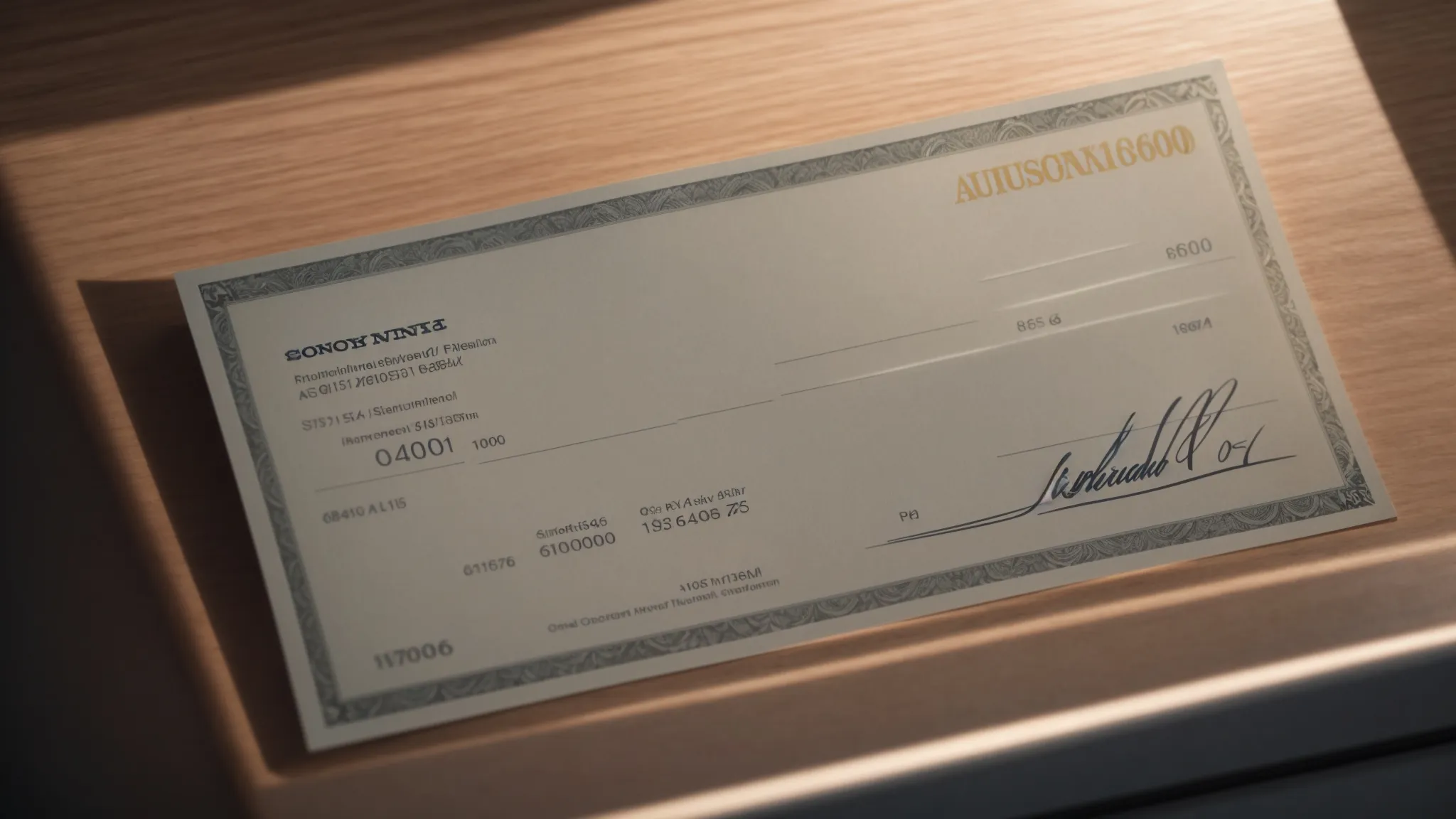When faced with cheque disputes, many small business owners feel overwhelmed and unsure of how to resolve the issue quickly. Cheque disputes can arise from various causes, such as errors in processing or misunderstandings during a joint venture. This article will guide readers through key steps to resolve these disputes efficiently and explore preventative measures to avoid future issues. By addressing common problems and providing practical solutions, this content will empower owners to confidently tackle cheque disputes and maintain their business operations.
Understanding Cheque Disputes and Their Common Causes

Common reasons for cheque disputes often stem from errors in processing or insufficient funds, which can have substantial legal implications. Understanding the importance of timely cheque processing is crucial for maintaining smooth financial operations, especially in regions like Faridabad and Kanpur. Furthermore, insights into trial procedures and the necessity of obtaining a legal opinion can assist businesses in managing disputes effectively.
Common Reasons for Cheque Disputes
Cheque disputes often arise from errors in processing and issues related to insufficient funds, which can severely impact financial dealings. For example, when an employee’s salary is paid via cheque but the account lacks adequate funds, it creates a significant presumption of responsibility that can lead to legal implications under employment law. Such disputes emphasize the necessity for accurate financial management to avoid complications in mobile banking transactions.
Furthermore, lacking proper evidence in cheque disputes can complicate resolution efforts. Businesses might find themselves entangled in legal proceedings if discrepancies are not clearly documented. Understanding these common reasons not only helps in preventing disputes but also equips businesses with the necessary knowledge to navigate the legal landscape effectively when issues arise.
Legal Implications of Cheque Disputes
Cheque disputes can lead to significant legal implications, particularly regarding liability and risk management. For instance, when a business issues a cheque that subsequently bounces due to insufficient funds, the process may expose the issuer to legal actions from the recipient, which could result in a lawsuit. In cases involving marriage, the financial responsibilities of couples may complicate these disputes further, as joint accounts can lead to miscommunication about funds and liabilities.
Having a competent lawyer is essential for navigating the complexities surrounding cheque disputes. Legal actions can involve claims related to unpaid income, and in some scenarios, businesses may endure reputational damage due to unresolved disputes. Therefore, understanding these legal implications empowers companies to establish stronger risk management protocols, protecting themselves and their stakeholders from potential legal challenges.
Importance of Timely Cheque Processing
Timely cheque processing plays a vital role in preventing disputes that can arise from delayed payments. In the context of contracts and payment agreements, delays can create complications for the drawer, leading to potential legal implications and misunderstandings. For businesses operating in competitive environments like the United Arab Emirates, ensuring that cheques are processed promptly can significantly enhance cash flow management and foster reliable relationships with clients and suppliers.
Moreover, swift processing helps avoid risqué consequences related to cheque dishonor, which can impact an organization’s financial stability. Acquittal of responsibilities becomes difficult when payments are not made on time, resulting in unnecessary stress for both the drawer and the beneficiary. By prioritizing timely transactions and adhering to processing timelines, businesses can mitigate risks associated with cheque disputes and maintain smoother financial operations.
Disputes over cheques can spring from misunderstandings and errors. Knowing how to resolve them quickly can keep business running smoothly and protect relationships.
Steps to Resolve Cheque Disputes Efficiently

Resolving cheque disputes requires a systematic approach to ensure all parties are treated fairly. This begins with gathering necessary documentation, which includes bank statements and contract agreements. Analyzing the terms of the cheque can provide insights into potential issues, while initiating communication with involved parties is crucial for clarification. Lastly, exploring mediation or negotiation options may help mitigate expenses before escalating to a criminal charge or other legal actions.
By following these steps, businesses can address discrepancies efficiently while protecting their interests, including the management of debit card interactions and relevant legal considerations associated with cheque disputes.
Gathering Necessary Documentation
When addressing cheque disputes, gathering necessary documentation is a critical first step. Businesses should collect all relevant records, such as bank statements, contract agreements, and payroll documents that establish the relationship between the parties involved. In cases where disputes escalate to court, having clear and organized documentation can demonstrate compliance with metrology standards and the validity of transactions, including the use of digital signatures for enhanced security.
Proper documentation not only assists in resolving disputes but also helps businesses protect their interests. For instance, when discrepancies occur, having a detailed account of transactions can facilitate clear communication with all parties within a society, reducing misunderstandings. By ensuring that all documents are accurately compiled and easily accessible, companies can enhance their chances of a favorable resolution and streamline the dispute management process.
Analyzing the Terms of the Cheque
Analyzing the terms of the cheque is essential in the dispute resolution process. Businesses must carefully review specific details, such as the amount, date, and signatures, to identify any discrepancies that could lead to misunderstandings. For a private limited company facing a summons due to a bounce cheque, understanding the cheque‘s terms can provide insights into compliance with labour law and demonstrate efforts to resolve the issue proactively.
When discrepancies arise, having a clear understanding of the cheque‘s terms can facilitate effective communication with involved parties. This level of detail often dictates the next steps in resolving disputes, ensuring that both parties are aware of their responsibilities and the potential liabilities involved. In many cases, recognizing the nuances in cheque terms can prevent escalated legal actions and aid both the issuer and recipient in finding a satisfactory solution.
Initiating Communication With the Involved Parties
Initiating communication with involved parties is a critical step in effectively resolving cheque disputes. Businesses must reach out to their counterparts promptly, addressing any discrepancies that arise regarding the cheque in question. Clear communication not only fosters a cooperative environment but also adheres to corporate law principles, which can safeguard the interests of both parties and help avoid costly judgments or further legal issues.
During these discussions, it is vital for businesses to present their position clearly, supported by any relevant documentation, such as bank account records and accounting statements. This transparency can help clarify misunderstandings related to payments and ensure both parties are on the same page regarding financial responsibilities. By addressing concerns openly, businesses can work towards a solution that protects property rights and minimizes the likelihood of prolonged disputes.
Seeking Mediation or Negotiation Options
Businesses often benefit from seeking mediation or negotiation as a viable method for resolving cheque disputes. These options allow involved parties to address issues without resorting to a lengthy criminal procedure or the potential for punishment through litigation. For instance, parties can collaborate to create an audit trail that clearly documents their efforts to resolve the complaint, reducing the chances of further conflicts and promoting a cooperative environment.
Engaging in discussions about resolution not only focuses on the dispute at hand but also allows for legal advice to be shared, ensuring both sides understand their rights and obligations. This proactive approach can help in identifying mutually beneficial solutions that minimize tension and enhance relationships. By utilizing mediation or negotiation, businesses can often resolve their issues effectively while navigating the complexities surrounding cheque disputes.
When efforts to resolve a cheque dispute fall short, the next step is clear: explore the legal options. Understanding your rights can be the key to finding a fair resolution.
Legal Options Available for Cheque Disputes

Understanding litigation in cheque disputes is essential for businesses facing legal challenges, particularly regarding jurisdiction and the burden of proof. The role of a legal expert becomes critical in navigating these issues and ensuring compliance with local laws, including partnership agreements and licensing requirements. Additionally, alternative dispute resolution methods can offer practical solutions, providing the opportunity for amicable settlements without the complexities of court proceedings.
Understanding Litigation in Cheque Disputes
Litigation in cheque disputes can present significant challenges for businesses, particularly regarding legal liability. Under the Indian Penal Code, issuing a cheque without sufficient funds can expose the issuer to penalties, including imprisonment. Understanding the legal framework surrounding these disputes is essential for businesses to effectively navigate the potential consequences and protect their interests.
For companies facing cheque disputes, a comprehensive approach to litigation is crucial. Engaging with legal experts can help clarify responsibilities and enhance understanding of the implications of the Indian Penal Code regarding cheque bounce cases. Leveraging intellectual property practices within contracts may also safeguard a business’s financial position, ensuring that both parties adhere to agreed terms and minimize risks associated with cheque-related disputes.
Role of a Legal Expert in Resolving Disputes
A legal expert plays an essential role in resolving cheque disputes by providing informed opinions based on their understanding of the law. When issues arise, such as cases involving insufficient funds or allegations of copyright infringement, their insights can help clarify the situation and guide involved parties towards a resolution. This expertise is particularly valuable when navigating complex regulations set forth by entities like the Reserve Bank of India, ensuring compliance with financial practices and legal standards.
Additionally, legal professionals can assess the potential risks associated with cheque disputes, including the possibility of facing a magistrate if the situation escalates. Their ability to outline strategies for resolution can be critical in managing associated fees and protecting the interests of their clients. By leveraging their knowledge, businesses can approach disputes more confidently, knowing they have access to sound legal advice that promotes effective outcomes.
Alternative Dispute Resolution Methods
Alternative dispute resolution (ADR) methods, such as mediation and arbitration, offer effective ways to resolve cheque disputes without the need for litigation. For businesses, including limited liability partnerships in Nashik, these methods can provide a streamlined approach to addressing issues related to negotiable instruments. By engaging an expert mediator, parties can reach mutually acceptable solutions that save time and resources compared to traditional court proceedings.
Mediation, in particular, allows involved parties to discuss their concerns openly and work towards an agreement that meets their needs. This process can be especially beneficial when disputes arise over cash transactions and cheque payments, as it fosters collaboration between businesses and clients. By opting for ADR, companies can maintain their professional relationships while addressing financial disputes in a constructive manner.
Even with legal steps, the best way to handle cheque disputes is to prevent them from happening. Let’s look at how you can protect yourself and your business before issues arise.
Preventative Measures to Avoid Cheque Disputes

Implementing best practices for writing and issuing cheques is pivotal in reducing the likelihood of disputes. Effective cheque verification processes ensure accuracy before processing, while educating payees about proper cheque handling can minimize errors. These strategies help consumers navigate potential negotiation scenarios and understand their rights under the Supreme Court of India, enhancing their overall knowledge and confidence in cheque transactions.
Best Practices for Writing and Issuing Cheques
Implementing best practices for writing and issuing cheques can significantly minimize the risk of disputes. Precision is key; making sure that the cheque‘s amount, date, and signatures are accurate reduces uncertainty and enhances the settlement process. Moreover, utilizing digital tools like a unified payments interface can streamline issuing payments and ensure prompt clearance, which helps mitigate potential issues related to interest rate fluctuations and inaccurate billing.
Another important reason for adhering to best practices is to educate all parties involved about the proper handling of cheques. Training employees on verification procedures and clear communication regarding funds can address common pain points in cheque management. This fosters a more transparent environment, reducing the likelihood of disputes and ensuring that all transactions meet compliance standards, ultimately preserving business relationships and protecting financial interests.
Importance of Cheque Verification
Cheque verification is essential for minimizing errors and preventing disputes, especially for businesses operating in regions such as Ambala. Ensuring that all details, including the amount, date, and signatures, are accurate can significantly reduce misunderstandings that often lead to mediation or debt-related issues. By implementing a thorough verification process, companies can safeguard their interests and maintain trust in their financial transactions.
Additionally, having a proper memorandum outlining cheque handling procedures can enhance awareness among employees about the importance of cheque verification. Coupled with the practice of utilizing personal identification numbers for sensitive transactions, this strategy promotes accountability and transparency. Such proactive measures not only streamline operations but also help businesses avert complications that arise from cheque disputes, ultimately fostering more reliable relationships with clients and partners.
Educating Payees About Cheque Handling
Educating payees about proper cheque handling is essential to reducing the risk of fraud and ensuring smooth financial transactions. By providing customers with clear guidelines on how to fill out and endorse cheques correctly, businesses can minimize instances of dishonoured cheques that arise from simple mistakes. For example, encouraging payees to double-check details such as the amount and signatures before presenting a cheque can foster accountability and help prevent costly errors.
Additionally, businesses should communicate the importance of keeping personal information private and being vigilant about cheque security. Simple practices, such as storing cheques in a secure location and monitoring bank statements for unauthorized transactions, can significantly enhance credit protections. Clear communication and training on these aspects empower customers, allowing them to navigate cheque transactions confidently while reducing potential disputes.
Ignoring cheque disputes can lead to serious repercussions. Understanding these consequences is crucial for anyone who values their business.
Consequences of Ignoring Cheque Disputes

Ignoring cheque disputes can lead to significant legal ramifications, particularly when unresolved issues escalate to trial court proceedings. Businesses may face financial impacts, such as fees associated with cheque bounce incidents. Further, the reputation risks associated with poor communication can damage relationships with clients and partners. Understanding these aspects emphasizes the importance of proactive resolution strategies.
Legal Ramifications of Unresolved Disputes
Ignoring cheque disputes can result in severe legal ramifications, particularly concerning a business’s credit score. When unresolved disputes escalate, they can trigger legal actions that not only lead to costly court fees but also negatively impact a company’s creditworthiness. This decline in credit score may hinder opportunities for obtaining loans or engaging in crucial financial partnerships in the future.
Furthermore, unresolved cheque disputes can open the door to increased liability, placing businesses at risk of facing charges related to cheque fraud or insufficient funds. Companies that do not address these issues promptly may find themselves embroiled in lengthy litigation processes, which can drain resources and disrupt normal operations.Therefore, proactively managing cheque disputes is essential for safeguarding both financial stability and the reputation of the business.
Financial Impacts of Cheque Bounce Incidents
Cheque bounce incidents can lead to significant financial consequences for businesses, particularly when they ignore such disputes. Businesses face potential penalties, including fees charged by banks for bounced cheques, which can add up quickly and impact the overall cash flow. Furthermore, repeated occurrences of cheque bouncing can damage a company’s creditworthiness, making it harder to secure loans or favorable terms from suppliers in the future.
Proactively addressing cheque bounce incidents is vital to maintaining financial stability. By resolving disputes swiftly, businesses can avoid the legal ramifications that may accompany unresolved cheque issues, such as court costs and additional fines. Effective dispute management not only protects the financial integrity of the business but also enhances its reputation among clients, thereby fostering stronger business relationships and trust.
Reputation Risks for Businesses
Ignoring cheque disputes can severely damage a business’s reputation. When clients discover that a company has unresolved payment issues, they may question its reliability and professionalism. This loss of trust can lead to clients choosing to work with competitors, resulting in a direct impact on revenue and future business opportunities.
Furthermore, a business that neglects cheque disputes may find itself in negative public discussions or reviews. Word-of-mouth spreads quickly, and potential clients may reconsider engaging services from a company perceived as untrustworthy. Hence, addressing cheque disputes promptly not only preserves existing relationships but also fosters a positive brand image that encourages new partnerships.
Resolving cheque disputes is vital for any business. For those seeking support, valuable resources await in the next section.
Resources for Further Assistance on Cheque Disputes

Support from consumer protection agencies can provide valuable guidance for individuals facing cheque disputes. Additionally, finding legal resources and templates can aid in understanding rights and potential legal recourse. Finally, contacting local financial institutions for assistance can offer crucial insights into dispute resolution processes. Each of these topics will enhance the ability to navigate and effectively resolve common cheque disputes.
Support From Consumer Protection Agencies
Consumer protection agencies serve as vital resources for individuals and businesses facing cheque disputes. These agencies offer guidance on legal rights and responsibilities related to cheque transactions, helping stakeholders understand the specific procedures for filing complaints and seeking resolutions. By accessing resources provided by these organizations, businesses can enhance their chances of effectively addressing cheque disputes and avoiding prolonged complications.
Additionally, consumer protection agencies often facilitate mediation services that can assist parties in reaching a fair resolution without resorting to litigation. By leveraging these support systems, businesses can gain insights into best practices for cheque management, enabling them to prevent future disputes. This proactive approach not only resolves current issues but also strengthens financial operations and enhances relationships with clients and partners.
Finding Legal Resources and Templates
Finding appropriate legal resources and templates is a pivotal step for businesses dealing with cheque disputes. Many online platforms offer access to customizable templates for legal documents, which can streamline the process of documentation when disputes arise. These resources not only provide a framework for understanding rights and obligations but also equip businesses to clearly articulate their positions in any negotiations or mediations.
Moreover, local legal aid organizations and consumer protection agencies often provide essential information about the legal processes surrounding cheque disputes. By obtaining these resources, businesses can better prepare themselves for potential legal challenges and enhance their understanding of the dispute resolution methods available to them. This preparation is crucial in safeguarding their interests and ensuring they are ready to navigate any complexities that may arise throughout the cheque dispute process.
Contacting Local Financial Institutions for Guidance
Contacting local financial institutions can be a highly effective step for businesses facing cheque disputes. These institutions often offer resources and expertise to help navigate challenges related to cheque processing and payment issues. By reaching out, companies can gain valuable insights and advice tailored to their specific situations, empowering them to resolve disputes more efficiently.
Additionally, financial institutions may provide access to dispute resolution services and help businesses understand the necessary protocols for addressing cheque discrepancies. Engaging with these institutions can also enhance communication efforts, ensuring that both the issuer and the recipient of the cheque can work together towards a satisfactory outcome. This proactive approach not only fosters good relationships with financial partners but also strengthens overall business operations.

